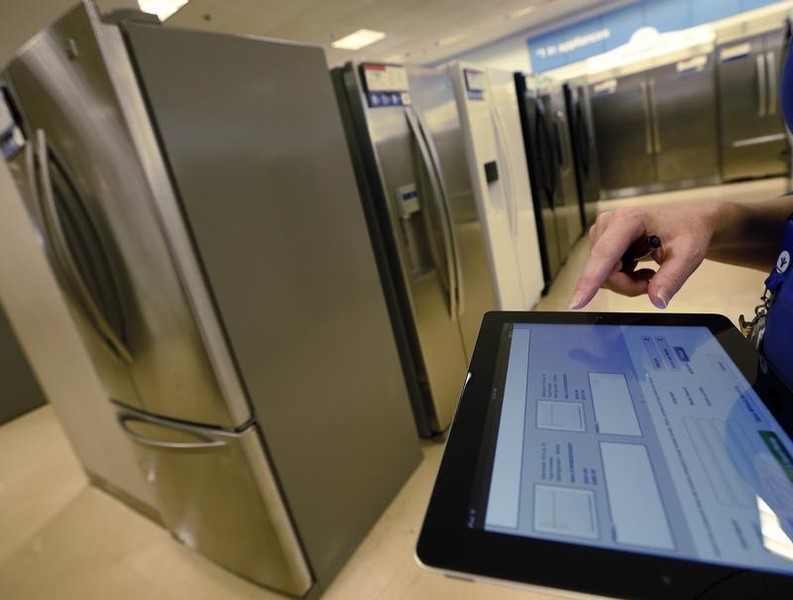By Lucia Mutikani
WASHINGTON (Reuters) - A gauge of U.S. business investment plans fell for a fourth straight month in December, a potential sign that slowing global growth and falling crude oil prices were starting to weigh on the economy.
Other data on Tuesday, however, suggested the economy remained on solid footing. Consumer confidence vaulted to a near 7-1/2 high in January and new home sales in December hit their highest level since June 2008.
"The drop in capex will weigh on growth, though stronger consumer spending should keep GDP from slowing too much," said Chris Low, chief economist at FTN Financial in New York.
The Commerce Department said non-defence capital goods orders excluding aircraft, a closely watched proxy for business spending plans, fell 0.6 percent last month after a similar decline in November.
Economists, who had expected a 0.5 percent gain, said weak overseas demand for capital equipment as well as declining domestic demand for energy-related equipment were likely to blame. They also said a strong dollar was a factor.
The report came as construction and mining equipment maker Caterpillar Inc (N:CAT) on Tuesday reported a nearly 25 percent decline in fourth-quarter profit and warned that falling oil prices would hurt its business in 2015.
Chemicals company DuPont (N:DD) also forecast lower operating earnings for 2015.
Weak capital goods spending is likely to catch the attention of Federal Reserve officials, who started a two-day policy meeting on Tuesday.
"This is ... evidence that the dollar's strength is starting to show up in terms of weaker orders, a new soft spot for manufacturing that perhaps will give some of the policymakers pause if not worry as they meet today," said Chris Rupkey, chief financial economist at MUFG Union Bank in New York.
The report and Caterpillar's weak earnings helped to knocked down U.S. stocks. The dollar fell against a basket of currencies while prices for U.S. Treasury debt rallied.
CONSUMER SENTIMENT INDEX JUMPS
Shipments of core capital goods, which are used to calculate equipment spending in the government's gross domestic product measurement, fell 0.2 percent last month after slipping 0.6 percent in November and dropping 0.9 percent in October.
That suggested a downside risk to the fourth-quarter GDP estimate, currently around a 3 percent annual pace. There is little doubt that spending on equipment took a step back in the fourth quarter after two quarters of strong back-to-back increases.
Still, the economy remains on firmer ground. In a separate report, the Conference Board said its consumer sentiment index jumped to 102.9 in January, the highest reading since August 2007, from 93.1 in December.
"It supports our view of continued strong job growth into the New Year and that rising wealth levels and lower gas prices are boosting household purchasing power," said John Ryding, chief economist at RDQ Economics in New York.
In another report, the Commerce Department said new home sales jumped in December to their highest level since 2008.
A strengthening jobs market is expected to stimulate the housing market this year after the sector lagged growth in the overall economy last year. A fourth report showed a deceleration in house price gains. The S&P/Case Shiller composite index of 20 metropolitan areas rose 4.3 percent in November from the prior year, the slowest since October 2012.
